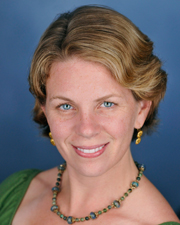Sara M. Gregg

Term: Winter 2017
Contact: sgregg@ku.edu
Topic:
While at Grey Towers I was drafting a natural history of eastern Montana, gleaning material from the impressive collection in the library as well as distilling other sources. The excellent collection of volumes on plants, wildlife, and the Western landscape enabled me to develop a narrative that integrates the sensory experience of the landscape in written form.
Since then, I have presented versions of this work, “Bee’s-Eye View: Re-Capturing the Sensory Dynamism of Montana’s High Plains,” at MIT in Boston, in Munich, Germany, at the Rachel Carson Center, and at the University of Kansas.
During my time in residence I also began to delve into the Pinchot correspondence and volumes on his life, situating his contributions to the policy changes that took place within the U.S. government between 1900-1920. This research will contribute to a later section of my larger project, Free Land: Homesteading the U.S. West.
Testimonial:
“The opportunity to step away from my other professional obligations and devote myself to reading and writing represented a fabulous escape into my work. Between the quiet of the Guardhouse and the glorious tower office with views of the valley, and a compelling collection of books at hand, my time at Grey Towers proved exceptionally fruitful. The gracious staff and delightful locale made my time away all the easier, and it was a highlight of my year to sink into the wintertime quiet of the Poconos.”
Publications:
“Imagining Opportunity: The 1909 Englarged Homestead Act and the Promise of the Public Domain,” Western Historical Quarterly 50 (Autumn 2019): 257-279, https://doi.org/10.1093/whq/whz044.
“Visualizing the Enlarged Homestead Act: Cartographic Evolutions in Early-Twentieth-Century U.S. Land Policy,” in Mapping Nature Across the Americas, James Akerman and Kathleen Brosnan, eds., University of Chicago Press (expected 2020).
“Beyond Stories: Spatial Inquiries and the Practice of Environmental History,” in A Field on Fire: Essays on the Future of Environmental History Inspired by the Work of Donald Worster, ed. Mark Hersey and Ted Steinberg, University of Alabama Press, 2019.
